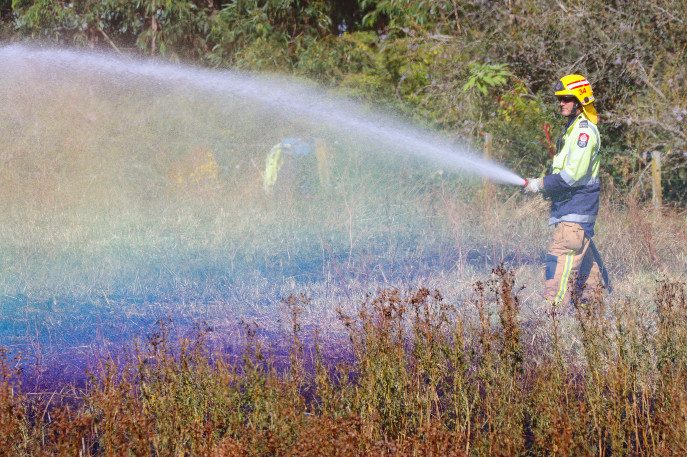Vegetation fires are the most common callout in the Bay of Plenty.
Fire and Emergency New Zealand says they have attended 473 callouts this year.
With summer approaching, they want people living with a risk of wildfire to act now and protect their homes from the wildfire hazard.
'Mowing paddocks can cause a fire, disposing of embers when they're not cold can have devastating impacts,” says Region Community Education Advisor Sally Chersterfield.
Fire and Emergency Wildfire Specialist Graeme Still says people should focus on any fire hazards in contact with their home first.
'Clear your gutters, get a non-flammable doormat and remove flammable materials like firewood stacked against your home."
He says everything within 60 metres from your house can determine how safe it will be in a wildfire.
"Once you've made your home safe, work your way outwards to the edges of your property. Keep your lawns watered and green - the greener the grass, the less likely it is to burn.
"Remove long grass, shrubs, twigs and other fuels that are within 10 metres of your home.”
As well as making your home and surrounds fire safe, Graeme says it's also important to ensure firefighters can access your property if there is a fire.
"If we can't get to you, we can't help you.
'Make sure your driveway has enough clearance for emergency vehicles. Fire trucks need at least 4x4 metres."
The second most common fire callout was for structure fires with 397 callouts, followed by rubbish bin or skip fires accounting for more than a quarter of the fire call outs.
Vehicle fires amounted to 13 per cent of the callouts.
In total, across the country there were 5735 wildfires and 10,415 hectares burnt between October 1, 2019, and April 31, 2020.
This is well above the 2018/19 season and well above the five-year (4337 fires) and 10-year (4100 fires and 4500 ha) averages.
The Old Dunstand Road fire in Otago on November 9 last year burnt more than 5000 hectares alone and affected conservation land and the Dunedin water supply.
But according to the annual report out of 83,359 incidents only 23,258 were fire related or just under 28 per cent.
Other reasons for callouts were for medical emergencies, hazardous substances and motor vehicle accidents.
Making up the rest of the 36,000 were ‘other incidents' such as false alarms and weather events.
The Fire and Emergency NZ annual report was released last week.



0 comments
Leave a Comment
You must be logged in to make a comment.